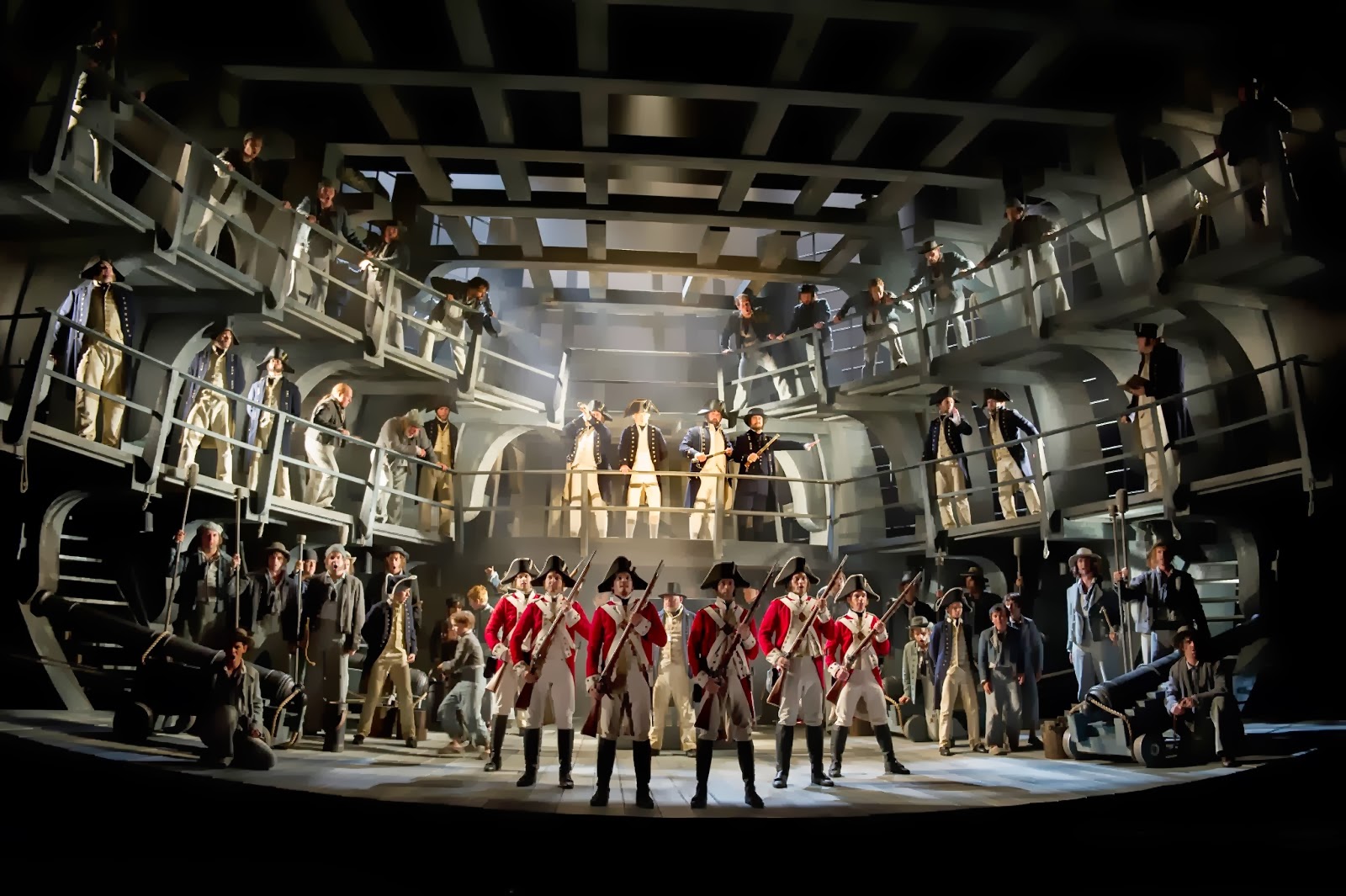.jpg) |
| Britten's Billy Budd (photo: Richard Hubert Smith) |
the traveler's resource guide to festivals & films
a FestivalTravelNetwork.com site
part of Insider Media llc.
Film and the Arts
Stage Reviews: Britten's 'Billy Budd' at BAM; 'After Midnight' on Broadway
- Details
- Parent Category: Film and the Arts
- Category: Reviews
- Published on Wednesday, 12 February 2014 14:43
- Written by Kevin Filipski
Billy Budd
February '14 Digital Week II
- Details
- Parent Category: Film and the Arts
- Category: Reviews
- Published on Tuesday, 11 February 2014 02:08
- Written by Kevin Filipski
Ottorino Respighi—Violin Sonatas
Off-Broadway Review: The New Group's "Intimacy"
- Details
- Parent Category: Film and the Arts
- Category: Reviews
- Published on Sunday, 09 February 2014 20:13
- Written by Kevin Filipski
.jpg) |
| Austin Cauldwell, Ella Dershowitz and Daniel Gerroll in Intimacy (photo: Monique Carboni) |
Film Review: "The Monuments Men" is a Mess
- Details
- Parent Category: Film and the Arts
- Category: Reviews
- Published on Thursday, 06 February 2014 23:30
- Written by Matt Oakes

George Clooney's The Monument's Men is a monumess. A sloppily assembled patchwork of scenes, it's a great story with no backbone that flops from event to event like a fish out of water. Without the propulsion of any kind of momentum, the tale sags, leaving us dulled to the story's eventual important moments. With all the talent involved and Clooney behind the camera, we expect something with panache, wit and style and instead are served up this goofy slop of events thrown at the stage with all the disheveled precision of a pie-in-the-face. However intriguing the "true story" behind the film, it is apparently best left in books or relayed in insightful anecdotes as Clooney has all but snuffed the life out of what ought to be a monumental account. As Roger Ebert famously said, "Movies are not about what they are about, but how they are about it." Here, Clooney's how looks a lot like wingin' it.
As mentioned above, the biggest problem holding The Monuments Men back from glory is how frumpily the series of events are organized. Scenes flow into each other like class five rapids, positively clashing and jarring any sense of time or place. Tacking a scene set in France onto one in Germany or America, we never have a foothold on where we are or when exactly anything is taking place. Clooney throws date on the screen but they will hop to another moment in time and another character whose location and significance we can only guess. Only when Clooney's voiceover cuts through are we informed of the context of the content; a sure sign of narrative failure. When you're tasked with explaining to the audience what they're seeing, you know you're taken a wrong turn off the successful storytelling highway.
So as the film crashes from one scene to another, we're left trying to hold onto some semblence of structure and even the characters give us little to grasp onto. With the likes of Bill Murray, John Goodman, Matt Damon, Jean Dujardin and Bob Balaban assembled, one would expect stirring ensemble work but, for the most part, Clooney shies away from satisfying character development or captivating ensemble work. The only time he stops to really try and delve into characters are when they face death. What he fails to understand is that we already need to be invested at that point. You can't kill someone off and then try and make them important posthumously. These "oh wait" moments ring a clear signal of his inability to save the unfocused screenplay from itself and a blinding sign of his desperate attempts to course correct too late in the game.
Even with all these missteps, there are a number of intriguing and poignant scenes interspersed throughout but even they come across as too clunkily set and architecturally inorganic to propel the audience into a suspended state of caring. We want to know who these characters are but we rarely do. Goodman is just kind of there, Dujardin plays up his irresistible French charm and Balaban has some nice material to work his mousey persona on but none really amount to much more than appreciators of art. When Murray is given a dramatic moment to break down in the shower, he puts in some solid work but it makes no sense in the context surrounding that moment. It's like watching wrestling at the nail salon. It just doesn't gel.
Where Monuments Men's biggest disappointment is its squandered use of a killer cast. I will give credit to Cate Winslet, who will soon likely be an Academy Award winner, for her work as a Parisian art aficionado as her work is more notable than any of the gentlemen with whom she shares the screen.
And if you thought War Horse was old-fashion wait until you get a load of this. From the hokey John Williams-wannabe score (courtesy of Alexandre Desplat) to the almost played-for-laughs Nazi presence, it's just one long page in the book of cinematic taboo. While this may have worked better in 1965, it certainly doesn't fit 2014. Clooney has been able to manipulate time periods to his liking in the past but his attempt to do a period piece told in dated fashion works about as well as telling the Rwanda Genocide as a rom-com.
One thing is abundantly clear at this junction, Clooney's art junkie project was certainly not moved from its original release date to "fix up the effects." Columbia must have know they had little more than a hodgepodge of scenes and didn't know how to piece them together. The resulting papier mâchéd clunker of a wartime dramedy is a futile effort at grasping at straws. Worse yet, it's boring.
C-
Follow Matt Oakes on Facebook
Follow Matt Oakes on Twitter
More Articles...
Newsletter Sign Up



















